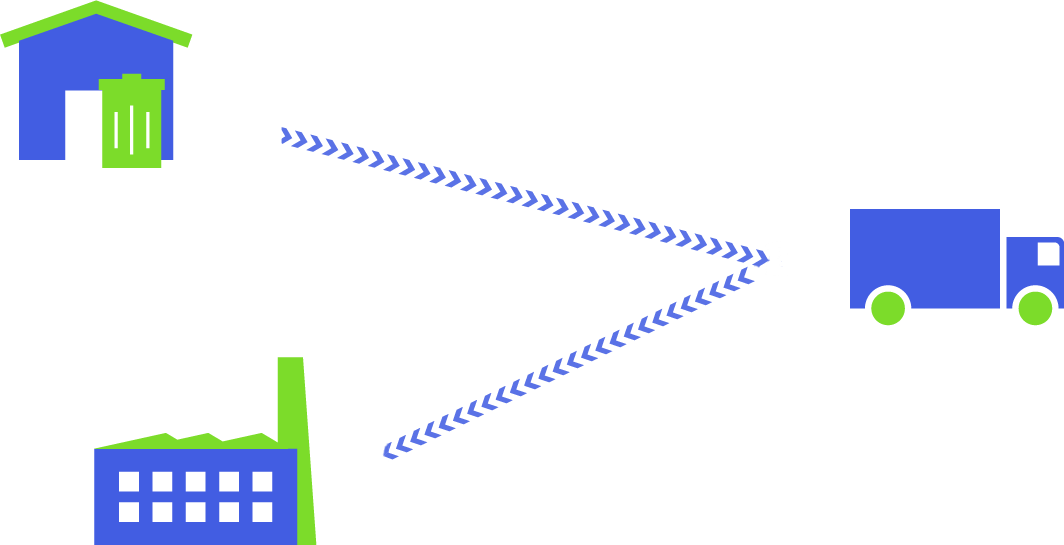In today's world, waste management has become a critical issue as our planet is facing a global crisis of excessive waste generation. Millions of tonnes of waste are being generated every day, and the majority of it ends up in landfills or oceans, causing severe environmental hazards. While composting is an effective method for managing organic waste, non-compostable waste remains a major challenge. However, with advances in technology and innovative approaches, it is now possible to transform non-compostable waste into useful resources. In this article, we will explore the various ways in which non-compostable waste can be turned into valuable resources.
Non-Compostable Waste: What is it?
Non-compostable waste refers to any type of material that cannot be broken down into natural elements by microorganisms within a reasonable period. These include plastic bags, styrofoam packaging, electronic waste, and other non-biodegradable materials. Such waste takes hundreds, if not thousands of years to decompose, making them a significant contributor to pollution and greenhouse gas emissions.
[IMG1]
Transforming Non-Compostable Waste into Useful Resources
1)
Waste-to-Energy Conversion:
One way to turn non-compostable waste into a resource is through incineration or pyrolysis. Incineration involves burning the waste at high temperatures to produce heat and electricity while reducing the volume of the waste significantly. Pyrolysis, on the other hand, uses heat in an oxygen-free environment to convert plastic and rubber materials into fuel oil. Both methods help in reducing the amount of waste that ends up in landfills while also providing a source of energy.
2)
Recycling:
Recycling is another effective way of transforming non-compostable waste into usable resources. The process involves collecting recyclables such as plastics, glass, and metals from the waste stream and converting them into new products. By recycling, we reduce the need for raw materials and save energy that would have been used in their production. Moreover, it diverts waste from landfills and reduces pollution.
3) Upcycling:
Upcycling is a creative and sustainable way of converting non-compostable waste into useful resources. It involves taking discarded materials and transforming them into products of higher value. For instance, artists create beautiful and functional
furniture using old tires or plastic bottles, while fashion designers make trendy clothing from fabric scraps. Upcycling not only reduces waste but also promotes creativity and entrepreneurship.
4) Bioremediation:
Non-compostable waste such as heavy metals and chemicals can contaminate soil and water bodies, making them unsuitable for plant growth or consumption. However, through bioremediation, microorganisms are used to break down these pollutants into less harmful substances, thus restoring the contaminated areas' ecological balance.
Pros and Cons
While transforming non-compostable waste into useful resources has numerous benefits, it also has its drawbacks. Some of the pros include reducing the amount of waste in landfills, conserving natural resources, promoting sustainability, and creating job opportunities in the recycling industry. On the other hand, some cons include high initial costs for setting up recycling facilities or waste-to-energy plants, emission of greenhouse gases during incineration processes, and potential health hazards from handling certain types of non-compostable waste.
Tips for Transforming Non-Compostable Waste
1) Segregate your waste: Proper segregation of waste at
home or workplace makes it easier to recycle or upcycle non-compostable materials.
2) Use reusable alternatives: Instead of single-use plastics or styrofoam packaging, opt for reusable options such as cloth bags or metal containers.
3) Support eco-friendly initiatives: Support local organizations or businesses that are involved in transforming non-compostable waste into resources.
4) Educate yourself and others: Stay updated on the latest developments in waste management and educate others about the importance of reducing, reusing, and recycling.
[IMG2]
Takeaways
- Transforming non-compostable waste is essential for reducing pollution and promoting sustainable living.
- Methods such as waste-to-energy conversion, recycling, upcycling, and bioremediation can turn non-compostable waste into valuable resources.
- Proper segregation of waste, using reusable alternatives, and supporting eco-friendly initiatives are some ways to contribute towards transforming non-compostable waste.
Conclusion
Dealing with non-compostable waste is a daunting task, but it is not impossible. With innovative solutions and individual efforts, we can transform this waste into useful resources. By adopting sustainable practices and supporting initiatives that promote proper waste management, we can make a significant impact in preserving our planet for future generations. Let us all do our part in turning non-compostable waste into valuable resources.









